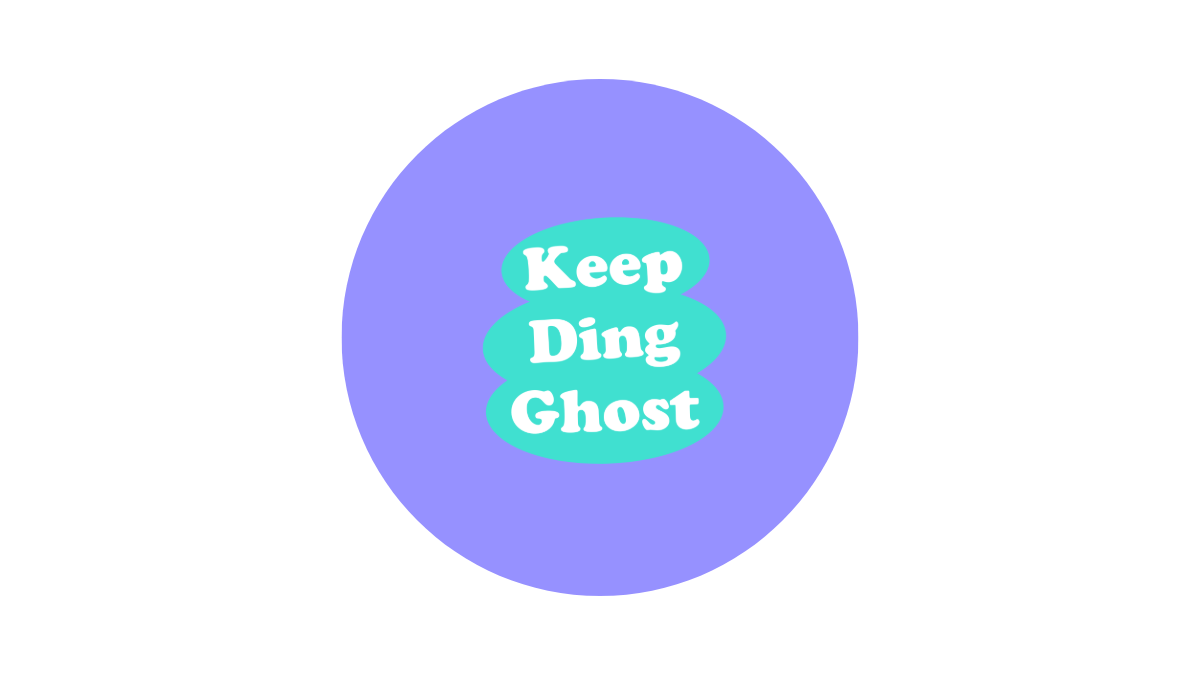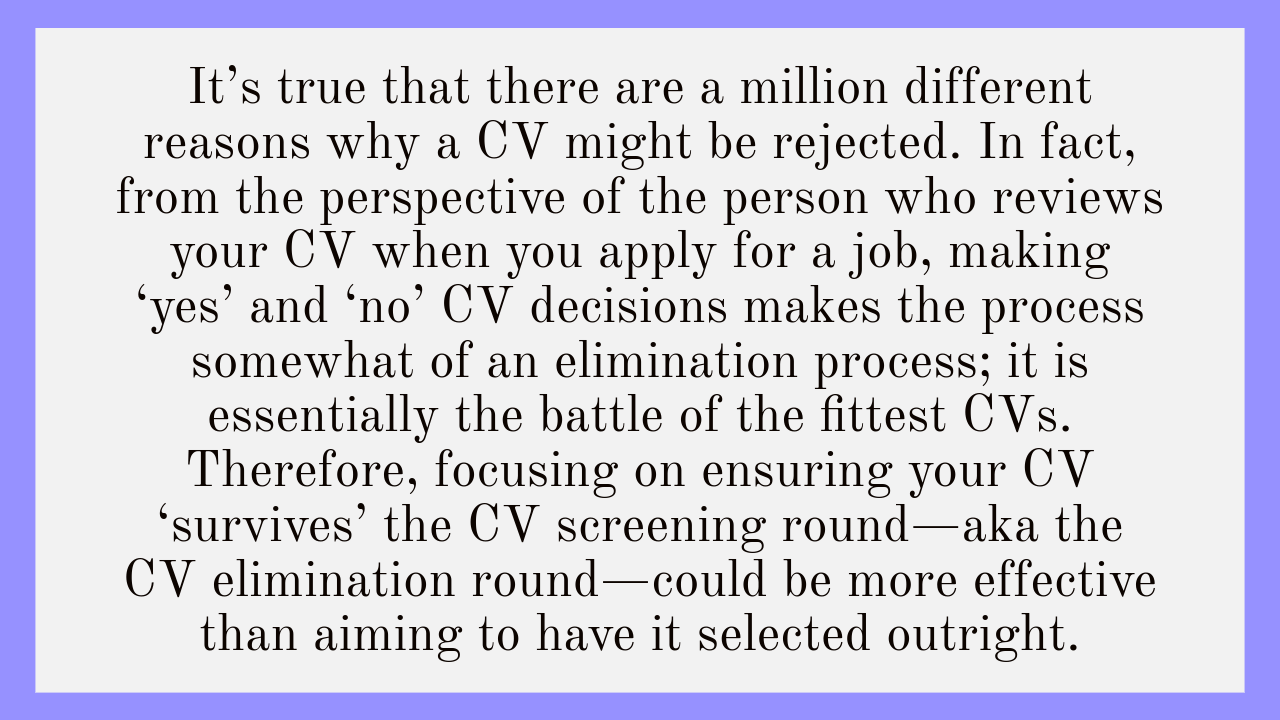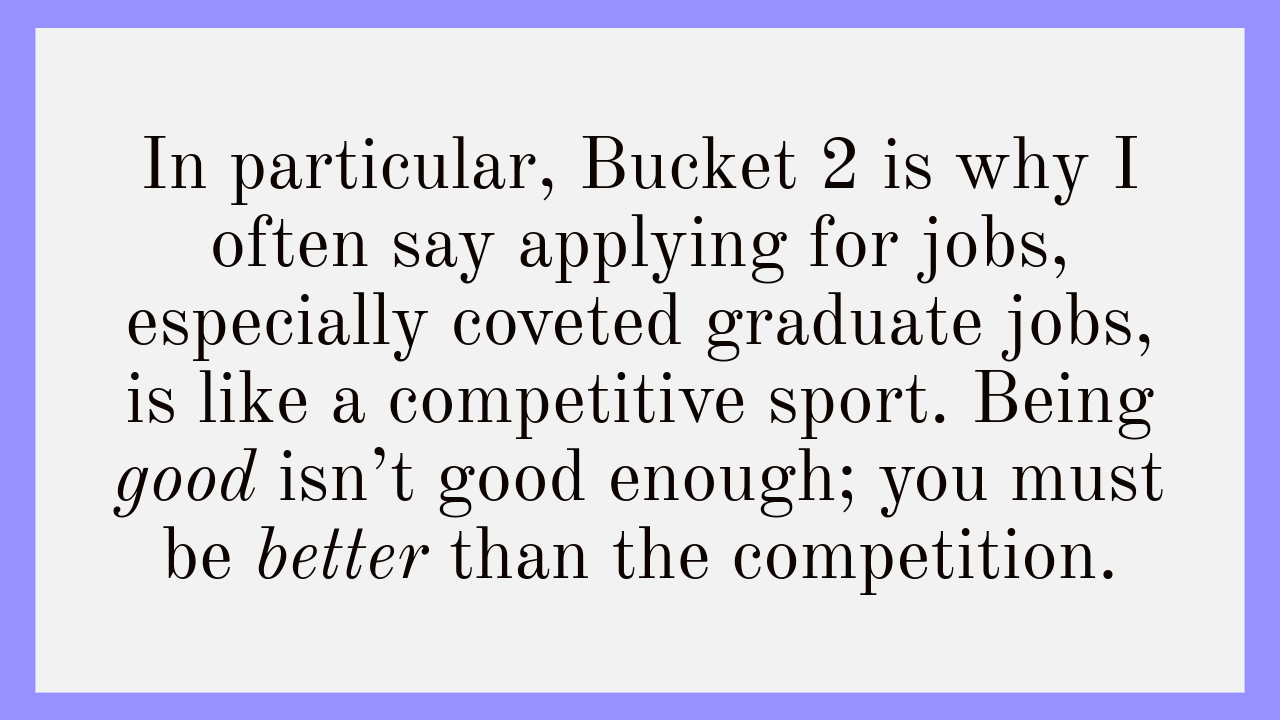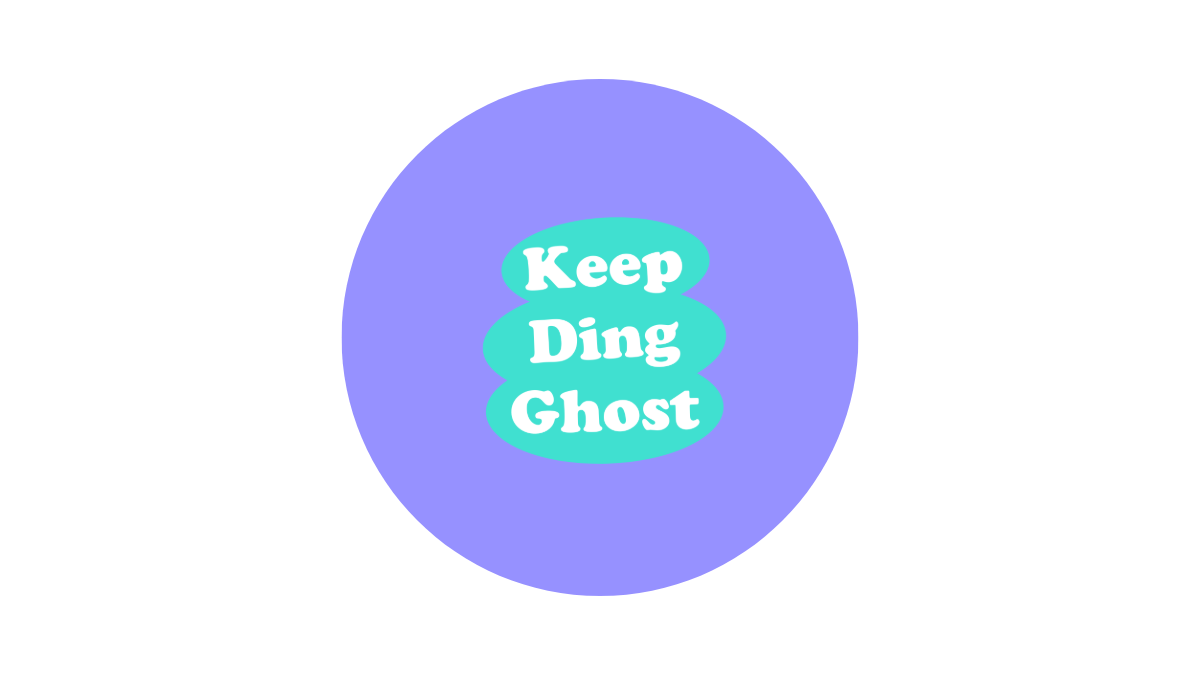Essential Reading: The Top 3 Reasons CVs Are Rejected
...and the three ways this newsletter can help you avoid the same fate
This post highlights the primary causes behind CV rejections. The bad news is that there are a million different reasons why CVs are rejected. The good news is that these reasons usually fall into one of just three main categories. Yup, just three! In other words, when a CV finds itself in the rejection pile, it is usually due to one of three main reasons. This post provides an overview of these reasons and explains how this newsletter will address them to help you avoid a rejection and, thus, enhance your chances of successfully passing the rigorous CV screening round conducted by top graduate employers.
Remember that company that rejected your job application despite your strong CV? This newsletter will show you what probably happened.
Welcome to Keep, Ding, Ghost! A weekly newsletter and podcast that provides feedback to graduate job applicants through FREE CV reviews.
Founder/Author: L. C. Serrão
Click here for FAQs. Click here for the Master Index.
Hey, guys! Those of you who have read this post know I have 10+ years of experience helping highly selective graduate employers in the UK and the US, like Morgan Stanley and the World Bank Group, recruit candidates for internships and full-time graduate roles. My role included assessing the strengths and weaknesses of each candidate’s CV and making decisions on which ones to reject and which ones to advance to the next round of the application process.
Plus, there are rarely CVs that are an 'absolute yes'. Over the 10+ years that I have been reviewing CVs for internships and full-time graduate roles provided by top graduate employers, I could probably count the number of times I’ve come across a CV that was an ‘absolute yes’ with one hand. And no, having 50 A* grades at GCSE and A-Level and two first-class degrees obtained simultaneously on your CV will not guarantee you a spot on my ‘absolute yes’ list.
Demonstrating your academic prowess is essential, but there are more straightforward ways to show me you’re smart. And most applicants can convey that pretty well. So, it's more compelling when you can manage strong academics with meaningful extracurricular activities, especially if you’re applying for entry-level jobs. While I rarely have CVs in my ‘absolute yes’ shortlist, I have an unapologetically much longer list of CVs in my ‘absolute no’ pile—and most of them are from final-year university students with zero extracurricular activities.
Anyway, I digress. As I was saying: I rarely see CVs that are an ‘absolute yes’. CVs often hover on the borderline, especially given that the quality of CVs is increasing annually while the rate of the average annual increase in the number of vacancies reserved for students and recent graduates lags significantly behind. Therefore, focusing on ensuring your CV ‘survives’ the CV screening round—aka the CV elimination round—is critical. To do this, you must be well-versed on why CVs get rejected, which will, in turn, enhance your chances of successfully passing the rigorous, fast-paced, competitive CV screening processes conducted by top graduate employers.
While it can be disheartening to hear that there are two million different reasons why a CV could be rejected, you can take comfort in knowing that each of these three million reasons usually falls into one of just three main categories. Yup, just three—and much easier to digest! In other words, when a CV finds itself in the rejection pile, it is usually due to one of three main reasons—which we will call ‘buckets’. Namely:
(1) Your CV is poor (i.e., it's a hard 'no')
(2) Your CV is good, but not good enough to beat the competition (i.e., if it were possible to increase the number of recruits, you may have been advanced to the next round of the application process)
(3) Your CV didn't reach the right recruiter's desk (i.e., I didn't even know you applied)
The strongest job applicants will be well-versed in all three buckets.
Buckets 1 & 2
Bucket 1 (your CV is poor) and Bucket 2 (your CV is good, but not good enough to beat the competition) are straightforward; they are direct reflections of the quality of your CV.
How this newsletter can help you avoid having your CV added to the rejection pile linked to buckets 1 or 2:
This newsletter will focus on helping you avoid having your CV rejected for one of the reasons associated with these two buckets by offering candid, nuanced feedback, practical tips, and advice on CVs that employers are often hesitant to share directly with job candidates and that you can immediately apply to strengthen your CV.
For example, this newsletter's flagship feature, the ‘Keep, Ding, Ghost CV Review Sessions’, which you should consider as test runs before you apply for your ideal graduate jobs, demonstrates the rigorous, fast-paced, competitive CV screening round conducted by top graduate employers: CVs submitted by subscribers compete against each other in head-to-head simulations, resulting in one CV advancing to the next round (i.e., keep), one receiving a soft rejection (i.e., ding), and one receiving a hard rejection (i.e., ghost). Hence, the name Keep, Ding, Ghost.
The ‘Ghost’ selections fall into the first bucket (your CV is poor).
The ‘Ding’ selections fall into the second bucket (your CV is good but not good enough to beat the competition).
So, you will witness some of those four million reasons why a CV could be rejected.
Whether it’s your CV or the CVs of other subscribers that are being reviewed, the head-to-head simulations through the Keep, Ding, Ghost CV Review Sessions provide you with a unique opportunity to be a ‘fly on the wall’ and witness the behind-the-scenes process that can lead to ‘yes’ and ‘no’ decisions on your job applications.
Think of the sessions like a revision class before a big exam, where you'll learn why one CV is graded as A+ and another as D, allowing you to obtain valuable insights into what you need to include (or exclude) from your CV to achieve the best results.
Bucket 3
This third bucket (your CV didn't reach the right recruiter's desk) delves into the importance of targeting the right graduate employers. The strongest applicants understand that no matter how strong a CV may be, it will only get you the results you desire if it is received by the most appropriate set of employers (for you).
In other words, this third and final bucket highlights potential issues with the list of employers you have chosen to target—or, more precisely, those you have failed to target.
This bucket is one that applicants need to pay more attention to.
Neglecting this third bucket could result in your CV failing to reach the employers most interested in your application—or worse—it could lead to your CV being rejected before anyone even reads it.
Common issues resulting from neglecting the importance of the third bucket include:
Limited job prospects due to insufficient applications: Many candidates are aware of too few graduate employers and thus apply for an insufficient number of jobs, leading to missed opportunities.
Less experience than early applicants: The strongest candidates begin applying for graduate jobs in their first year of university, while others start in their final year. Those in the latter group, therefore, often find themselves at a disadvantage due to having less experience on their CVs.
Reduced chances of employment by not considering employers with more vacancies: Some employers reserve 1,000 spots for students and recent graduates, while others reserve only 25. By only applying to the latter, you significantly reduce your chances of securing a graduate job.
Missing out on priority candidate status and related opportunities: Not knowing which graduate employers are actively seeking students and recent graduates from your university means missing out on being classified as a priority candidate.
How this newsletter can help you avoid having your CV added to the rejection pile linked to bucket 3:
This newsletter addresses the critical yet overlooked need to carefully select which employers to prioritise for graduate jobs by providing subscribers with a 10-step guide to creating a strategic list of employers to target.
This comprehensive 10-step guide was designed to equip you with all the necessary tools and information to help you avoid rejecting your CV for one of the reasons associated with this third bucket. It provides subscribers with resources like a curated list of 150+ top graduate employers, details on the number of vacancies these employers have reserved for students and recent graduates, and the universities they consider as ‘target schools’. The guide, therefore, provides a clear roadmap to constructing a strategic set of employers to target for graduate jobs.
Some of the posts related to this 10-step guide are already available, so if you haven't already, you can catch up by clicking here.
Understanding all three buckets will put you in a great position to increase your chances of successfully passing the rigorous, fast-paced, competitive CV screening processes conducted by top graduate employers. And since they are so notoriously challenging to secure, graduate jobs make for an excellent benchmark; if your CV can meet the standards required to successfully pass the CV screening round for graduate jobs, it will likely be strong enough to successfully pass the CV screening round for any job.
You’ve reached the end of this post—thanks for reading! I appreciate your time and interest!
Read/Learn More:
🔗Here’s the criteria I’ll use to review your CV
🔗What defines a CV as being in good ‘form’?
🔗Keep, Ding, Ghost CV Review Sessions
💬 Question Time:
Which of the three buckets do you feel is most likely the cause behind most of your CV rejections? Let me know in the comment section. I would love to hear from you!
💬 Here’s My Answer:
Between the three mentioned buckets, my answer is bucket 2: I think my CV has always been pretty good, but when it was rejected, I suspect it just wasn’t good enough to beat the competition. And I suspect the main reason for this was that my ‘experience’ section could have been considered weak compared to candidates with insight programs, internships and other such experiences with top graduate employers on their CV. Of course, you can’t turn back time, but once I had a good indication of the main reasons behind my rejections, I was able to come up with strategies to compensate for my CV shortcomings. And as you know (if you read this post), it worked, as I managed to get highly sought-after internships with Goldman Sachs and Morgan Stanley.
One More Thing:
If you enjoy this newsletter/podcast, there are several ways to let me know: 'like' this post, leave a comment, share this post, restack your favourite section of it (or the entire post), or become a premium subscriber (which you could potentially upgrade to for FREE).
✨Additionally, if you’d like to win a 1:1 virtual session with me to discuss recruitment-related topics such as your CV, cover letter, or interview, click here!












